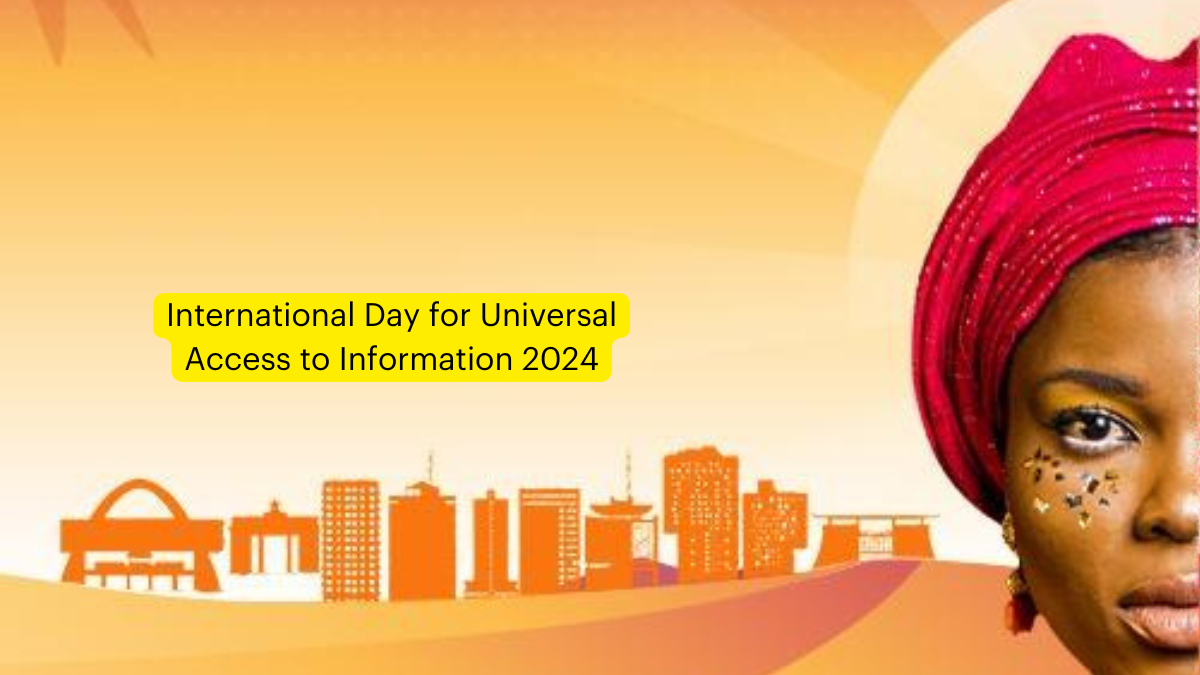On September 28, the world commemorates the International Day for Universal Access to Information (IDUAI), a vital occasion that underscores the fundamental right to access information. Proclaimed by the 74th United Nations General Assembly in October 2019, following the earlier declaration by UNESCO in 2015, this day highlights the importance of information accessibility as an integral part of freedom of expression and media freedom. The observance of IDUAI serves to celebrate the basic human right of access to information, emphasizing its critical role in the democratic process.
The Significance of Universal Access to Information
Universal access to information refers to the right of every individual to seek, receive, and impart information. This right is intertwined with freedom of expression and is essential for fostering a transparent and accountable society. Access to information empowers citizens, enabling them to participate in public discourse and decision-making processes effectively. The media plays a crucial role in this ecosystem by disseminating information to the public; however, it can only fulfill this role if it has the freedom to seek and receive information from various sources.
The Interconnection with Freedom of Expression
The right to universal access to information is a corollary of the right to freedom of expression. It reinforces the idea that for individuals to express themselves freely, they must have access to a wealth of information. Moreover, this right is foundational for a robust democracy, as it encourages informed participation among citizens in political, social, and economic arenas.
Observance of IDUAI 2024: Theme and Activities
Forum: “Mainstreaming Access to Information and Participation in the Public Sector”
The theme for IDUAI 2024 is “Mainstreaming Access to Information and Participation in the Public Sector.” This year’s observance aims to highlight the latest trends and best practices concerning access to information, especially in the digital era. UNESCO and its partners will engage in a variety of activities, including advocacy campaigns, panel discussions, and global conversations with experts. Participants are encouraged to engage with the conversation through the hashtags: #IDUAI, #28September, #RightToKnow, #OnlineSpace, #AccessToInfoDay, and #ArtificialIntelligence.
Global Conference on Universal Access to Information
In conjunction with IDUAI, the 2024 Global Conference on Universal Access to Information will be hosted by the government of Ghana in collaboration with UNESCO, taking place from October 1-2, 2024. This conference serves as a platform to evaluate the progress made in promoting access to information since the adoption of the UN Sustainable Development Agenda. While significant advances have been made, the need to accelerate efforts globally remains urgent.
Objectives of the Global Conference
The primary objective of the conference is to explore how mainstreaming Access to Information (ATI) laws across government sectors can significantly enhance the right to information. Throughout the event, government representatives and civil society actors will showcase how access to information policies are being implemented in various government entities.
Focus on Non-Governmental Actors
The conference will also delve into the role of non-governmental actors in ensuring policy coherence for ATI implementation across both public and private sectors. The aim is to present a comprehensive set of best practices for integrating the right to information into the organizational systems and culture of public authorities.
Emphasis on African Experiences
Highlighting African experiences, the conference will emphasize the transformative power of access to information in promoting peaceful, inclusive societies conducive to sustainable development. By sharing successful initiatives and practices from different regions, participants will be equipped with the knowledge and strategies necessary to foster a culture of transparency and accountability.
The Path Forward: Ensuring Access to Information
While considerable strides have been made in promoting access to information, challenges remain. Barriers such as limited resources, bureaucratic hurdles, and a lack of awareness among citizens hinder the realization of universal access. To overcome these obstacles, it is crucial to:
- Enhance Education and Awareness: Promoting education about the right to access information is essential for empowering citizens and encouraging active participation in democratic processes.
- Strengthen Legal Frameworks: Governments must establish and enforce robust legal frameworks that protect and promote access to information, ensuring compliance and accountability.
- Foster Collaboration: Collaboration among governments, civil society, and non-governmental organizations is vital for sharing best practices and implementing effective access to information policies.
-
Leverage Technology: Utilizing technology and digital platforms can significantly enhance access to information, making it more readily available to citizens, especially in remote areas.




 National Women's Day 2026 India: Signifi...
National Women's Day 2026 India: Signifi...
 World Radio Day 2026: Why Radio Still Ma...
World Radio Day 2026: Why Radio Still Ma...
 National Productivity Council Marks 68th...
National Productivity Council Marks 68th...








